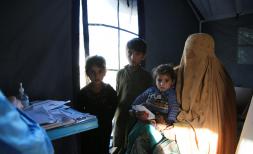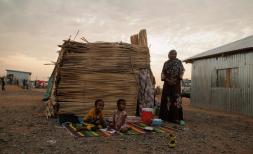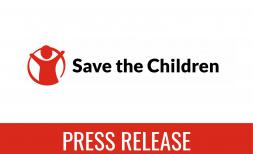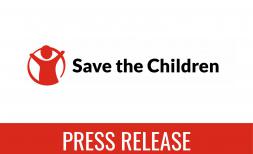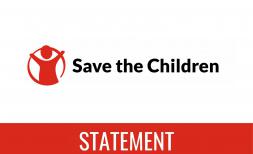Stories from children in Idlib: “A loud noise shook the whole school and we all fell”
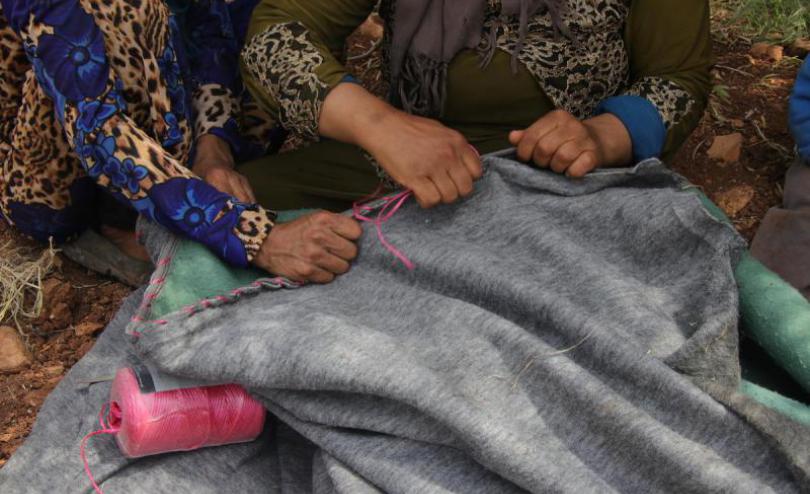
Following the latest escalation in violence across Idlib and Hama, more than 280,000 civilians have fled the area between 1st and 28th May seeking a safe haven for their families.
9 year old Husam* and his mother Randa* fled to a displacement camp earlier this month. Husam* was injured fleeing his school when it was shelled.
Husam*, said:
“Our teacher told us to go to the basement but we couldn’t make it as we heard a really loud noise that shook the whole school and we all fell. My leg then started bleeding, so the ambulance came and took me to the hospital.”
Hundreds of families are currently living in open spaces under olive trees in Northern Syria. Many of them are children and their families who fled in the first wave of violence in early April. 70,000 school aged children like Husam* now need educational support.
Amjad Yamin, Save the Children Syria Response Office Spokesperson, said:
“You can clearly see the plight of parents scrambling to protect their children, and themselves, from the intensified conflict. Families are tired, they are running out of options and do not know what to do or where to go next.
It is illegal to target civilians in conflict, and all warring parties have an obligation to protect them from attack. We are calling on all sides to respect International Humanitarian Law and human rights law and spare the lives and properties of the civilians wherever they are. Schools, hospitals and other vital civilian infrastructure must be protected from attack. Children are particularly vulnerable to the impact of explosive weapons, and warring parties should make a particular effort to protect them.
The current escalation is also particularly concerning on the long term as it comes during the harvest season. We have seen several fires, triggered by airstrikes and shelling, destroying staple crops like wheat and barley in northern Hama and southern Idleb. As the hot summer weather sets in, more fires can occur, further disrupting normal food production cycles and potentially reducing food security at least for months to come.”
Spokespeople are available. If you wish to arrange an interview, please contact Joelle Bassoul in Beirut joelle.bassoul@savethechildren.org 0096 1816 00696 or Davina Hagan in London davina.hagan@savethechildren.org 0044 7732 601762. During out of office hours, please contact media@savethechildren.org.uk 0044 7831 650409
